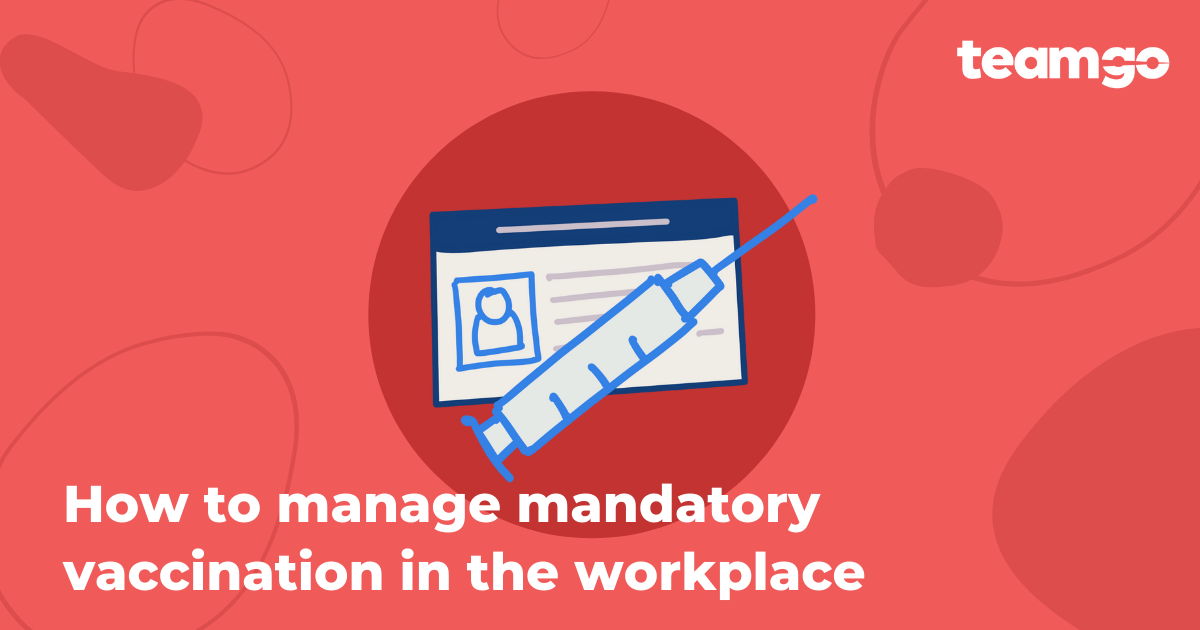The Future of Visitor Management: How AI is Revolutionizing Security, Efficiency, and Experience
In today’s fast-paced, increasingly digitized world, the way we manage visitors to offices, government buildings, schools, and other facilities is undergoing a significant transformation. Gone are the days of manually signing a guestbook at the front desk. Instead, organizations are adopting sophisticated visitor management systems (VMS) that enhance security, streamline operations, and improve the overall visitor experience. At the forefront of this evolution is artificial intelligence (AI), a technology poised to redefine how we handle the flow of people through our spaces.
AI’s integration into visitor management is not just a fleeting trend; it represents a fundamental shift that will set new standards for safety, efficiency, and personalization. This blog post explores the pivotal role AI will play in the future of visitor management, offering insights into the top five changes we can expect in the coming years.
The Rise of AI in Visitor Management
Visitor management has always been crucial for maintaining security, managing foot traffic, and creating a welcoming atmosphere. However, the traditional methods, often involving manual processes and basic digital tools, are limited in their capabilities. AI, with its ability to process vast amounts of data. It can recognize patterns, and learn over time, offers a game-changing solution.
Here’s why AI is becoming an integral part of modern visitor management systems:
- Enhanced Security: AI can quickly identify potential security threats through advanced facial recognition and behavioral analysis. It ensures that only authorized individuals gain access to sensitive areas, while also keeping a digital log of every visitor for future reference.
- Improved Efficiency: AI can automate many aspects of visitor management, from registration and check-in to scheduling and reporting. This not only saves time but also reduces the potential for human error.
- Personalization: AI-driven systems can provide a more personalized experience for visitors by anticipating their needs and offering tailored information or services. This is particularly valuable in environments like corporate offices or healthcare facilities, where a personalized touch can make a significant difference.
- Data-Driven Insights: AI can analyze visitor data to provide insights that help organizations optimize their operations. Improve your security protocols, and enhance the visitor experience.
- Scalability: As organizations grow, managing an increasing number of visitors can become challenging. AI-powered systems can easily scale to handle larger volumes of visitors without compromising on security or efficiency.
Top 5 Changes to Expect in Visitor Management with AI
The integration of AI into visitor management is set to bring about several key changes that will reshape how organizations handle visitors. Here are the top five changes we can expect in the coming years:
1. Real-Time Facial Recognition and Behavioral Analysis
Facial recognition technology is one of the most promising AI applications in visitor management. In the near future, we can expect facial recognition systems to become more widespread and sophisticated. This provides real-time identification of visitors as they enter a facility.
How it works:
- Instant Identification: Upon arrival, a visitor’s face is scanned and matched against a database of authorized personnel, such as employees, regular visitors, or pre-registered guests. If the system identifies a match, the visitor is automatically granted access, or the appropriate person is notified of their arrival.
- Security Enhancements: AI-powered facial recognition can cross-check visitor identities against watchlists, ensuring that potential security threats are detected and addressed before they enter the building.
- Behavioral Analysis: AI can also monitor visitor behavior for any signs of suspicious activity. For example, if a visitor is loitering in restricted areas or exhibiting unusual behavior, the system can alert security personnel in real-time.
Impact:
This real-time identification and analysis will significantly enhance security, reducing the risk of unauthorized access and improving the overall safety of the facility. Moreover, it will streamline the check-in process, allowing authorized visitors to gain access quickly without the need for manual intervention.
2. Predictive Analytics for Better Resource Management
Predictive analytics is another area where AI can make a substantial impact on visitor management. By analyzing historical data, AI systems can predict visitor flow patterns. Therefore helping organizations manage their resources more effectively.
How it works:
- Visitor Flow Predictions: AI can analyze past data to forecast busy periods, such as specific days or times when visitor numbers are expected to peak. This allows organizations to allocate resources, such as staffing at reception or the number of kiosks in use, more efficiently.
- Proactive Management: AI can also predict potential bottlenecks or delays in the visitor management process and suggest proactive measures to avoid them. For instance, if a large number of visitors are expected for a specific event, the system might recommend deploying additional staff or setting up temporary check-in stations.
Impact:
By leveraging predictive analytics, organizations can improve their operational efficiency, reduce wait times, and ensure that visitors have a smooth and hassle-free experience. This proactive approach will also help in optimizing the use of resources, leading to cost savings and better overall management.
3. Personalized Visitor Experiences
As AI becomes more integrated into visitor management systems, we can expect a greater emphasis on personalization. AI’s ability to process and analyze visitor data in real-time means that organizations can offer a more tailored experience to each visitor.
How it works:
- Personalized Greetings: Upon arrival, AI-driven systems can recognize returning visitors and greet them by name. This not only creates a more welcoming atmosphere but also reinforces the visitor’s sense of being valued.
- Tailored Information: AI can anticipate the visitor’s needs based on their previous interactions or the nature of their visit. For example, a visitor attending a meeting might receive directions to the conference room and a personalized itinerary. While a patient visiting a healthcare facility might receive information about their appointment and relevant services.
- Smart Scheduling: AI can automate the scheduling of visitor appointments, taking into account the availability and preferences of both the visitor and the host. This reduces the need for manual coordination and ensures that meetings are set up at the most convenient times.
Impact:
Personalization enhances the visitor experience, making it more engaging and efficient. This is particularly important in environments where a positive visitor experience is crucial, such as in customer-facing businesses or healthcare settings. By offering personalized services, organizations can build stronger relationships with their visitors and improve overall satisfaction.
4. Integration with IoT for Smart Environment Control
The Internet of Things (IoT) refers to the network of interconnected devices that can communicate and exchange data with each other. When combined with AI, IoT can offer powerful capabilities for managing the environment in which visitors are received.
How it works:
- Smart Access Control: AI can work with IoT-enabled access control systems to automatically grant or restrict access to different areas of a building based on the visitor’s credentials or pre-authorization status. For example, a visitor might only be allowed to access certain floors or rooms, and these permissions can be dynamically adjusted as needed.
- Environmental Adjustments: AI can use data from IoT devices to adjust the building’s environment based on the visitor’s preferences or requirements. For instance, the system might automatically adjust lighting, temperature. Or even background music when a visitor enters a meeting room.
- Real-Time Location Tracking: IoT devices can be used to track the real-time location of visitors within a facility. AI can then use this information to provide directions, manage foot traffic. Or even assist in emergency situations by guiding visitors to the nearest exit.
Impact:
The integration of AI with IoT will make visitor management systems more dynamic and responsive. It will allow organizations to create environments that are more comfortable, secure, and tailored to the needs of each visitor. This level of customization and control will be particularly valuable in large or complex facilities.
5. Automated Compliance and Data Management
As data protection regulations become increasingly stringent, organizations must ensure that their visitor management systems comply with legal requirements. AI can play a crucial role in automating compliance processes and managing visitor data more effectively.
How it works:
- Automated Data Handling: AI can automate the collection, storage, and processing of visitor data in compliance with regulations such as GDPR. This includes ensuring that data is anonymized, encrypted, and deleted after a specified period.
- Compliance Monitoring: AI systems can continuously monitor the organization’s compliance with data protection regulations, automatically flagging any potential issues or breaches. This proactive approach reduces the risk of non-compliance and the associated penalties.
- Smart Reporting: AI can generate detailed reports on visitor data, including trends, security incidents, and compliance metrics. These reports can be used by management to make informed decisions and demonstrate compliance to regulators.
Impact:
Automated compliance and data management will reduce the administrative burden on organizations, allowing them to focus on more strategic tasks. It will also provide peace of mind that visitor data is being handled securely and in accordance with legal requirements. In an era where data breaches and regulatory fines are on the rise, this is an invaluable capability.
The Future is AI-Driven
The integration of AI into visitor management systems is not just about improving current processes. It’s about reimagining how we manage and interact with visitors in a world where security, efficiency, and personalization are paramount. As AI technologies continue to advance, we can expect visitor management systems to become more intelligent. It’s responsive, and capable of meeting the evolving needs of organizations and their visitors.
By embracing AI, organizations can ensure that their visitor management processes are not only future-proof but also aligned with the demands of a rapidly changing world. From enhanced security and predictive analytics to personalized experiences and automated compliance. AI offers a wealth of opportunities to revolutionize visitor management.
As we look to the future, it’s clear that AI will play a central role in shaping the way we welcome and manage visitors. Those who adopt AI-driven visitor management systems today will be prepare for tomorrow.






